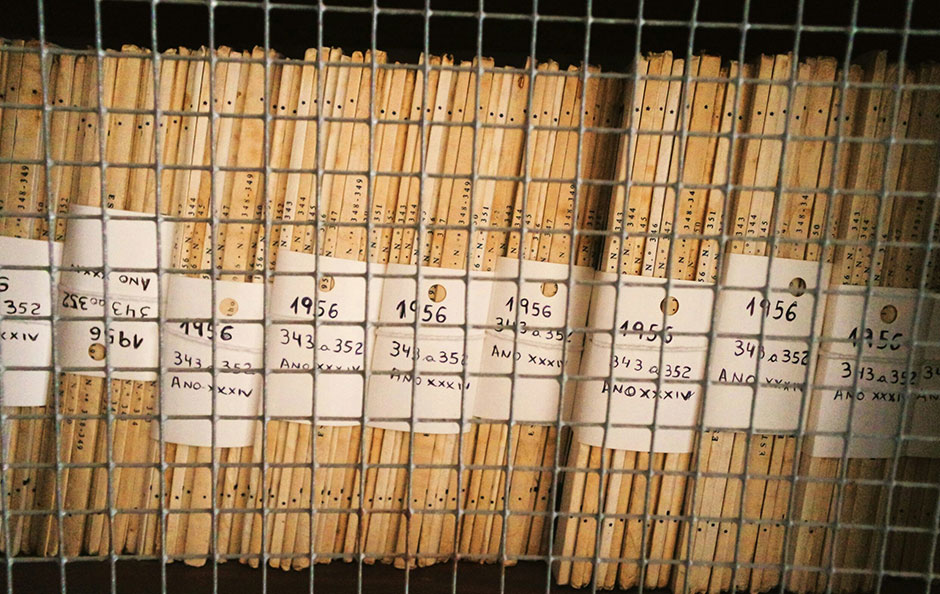Employee Absenteeism Investigations
Get a free quote now
Contact us for a free consultation


What is employee absenteeism?
Absenteeism can be described in the context of employment as an employee who regularly fails to turn up for work with little to no explanation, or for reasons you begin to believe are false.Absenteeism is different to authorised absences, such as annual leave entitlement, medical appointments, long term sickness, religious holidays, bereavement leave, and maternity and paternity leave. It even differs from irregular, unavoidable absences, such as genuine illness, or family emergencies. It’s when these irregular occurrences turn into regular ones that form a pattern that it becomes an issue.There may well be a genuine explanation, but in some cases, it may be that the employee is off work for no good reason.

Why Does Employee Absenteeism Happen?
There are many reasons why employees may be absent. Some are completely valid, while others may indicate misuse of company policies or deceit. Common causes include:
- Genuine illness or injury
- Mental health challenges such as stress, anxiety, or burnout
- Caring responsibilities at home
- Poor management or workplace conflict
- Lack of engagement or job dissatisfaction
- Working elsewhere while claiming to be unfit for duty (“moonlighting”)
- False sickness claims or fraudulent sick notes
Understanding these underlying causes ensures employers handle each case fairly while protecting their interests.
We’re specialists in investigating absent employees
Illness and emergencies are unfortunate realities of life. In such situations, employees are encouraged to address them and take the necessary sick leave; nothing is more important than an individual’s well being. However, fraudulent employee absence is also a reality, and it is one that can have severe negative effects on the efficiency of an organisation due to lost work hours and the morale of colleagues.It can be highly valuable to investigate an absent employee, especially if you suspect something is amiss.
When to Consider an Absenteeism Investigation
An absenteeism investigation may be appropriate when:
- An employee has frequent or long-term absences without sufficient explanation
- Patterns of absence coincide with weekends or holidays
- Evidence suggests they may be working elsewhere or engaging in personal activities while on sick leave
- Medical certificates appear questionable
- HR and management procedures have been followed, yet the situation remains unresolved
Investigations are most effective once all reasonable internal steps have been taken, such as formal absence meetings, occupational health referrals, or written warnings.
Discover fraudulent employee absences
Employees who engage in such deception have often done so for quite a while, and as a result, it can be difficult to discern whether their absences are legitimate or not. This is where skilled private investigators such as ours can be invaluable: planning a discreet and effective course of action and then executing it in order to identify illegitimate absences and nip them in the bud.
The legality of absent employee investigations
Obviously, if you’re planning to keep tabs on your employees, there are some legalities involved, and these are set out by the ICO. Their guidelines address the fine line between your organisational needs and your employee’s rights to privacy.We’d suggest reading the ICO guidelines in full if you’re looking to monitor your employees to sniff out employee absenteeism. However, in short, you’re advised to assess the potential impact of your monitoring on employees’ privacy, conduct data protection impact assessments, and maintain clear communication about monitoring practices. Data access should also be limited to authorised personnel only.
Covert monitoring
We’d also draw your attention specifically to the section on covert monitoring. In this section, the kind of monitoring you’re considering by engaging with a private investigator is covered.One of the many things to ensure is that ‘You should be satisfied that there are grounds for suspecting criminal activity (or an equivalent, such as gross misconduct) and that informing workers about the monitoring would prejudice its prevention or detection.’ It also states that if using a private investigator such as UKPI, you ‘must have a contract in place that requires them to only collect information in a way that satisfies your obligations under data protection law.’UKPI is proud to be a member of the ICO, and we are, of course, more than happy to discuss the legalities of an employee absenteeism investigation during your consultation.
How do employee absenteeism investigations work?
Our expert absent employee investigations always begin with an initial consultation to gain an understanding of the employee you’re looking to investigate, and what kind of evidence you need us to collect. Then, with the green light from you, it’s with us to discreetly gather the evidence you need, whether that’s physical evidence such as photos or videos, or digital evidence, such as screenshots of social media activity.Following our employee absenteeism investigations, we’ll provide you with both the evidence, and a report of our findings.
What Happens After the Investigation
Once the investigation is complete, you will receive a detailed report outlining the findings, supporting evidence, and recommendations. This report can be used to:
- Support disciplinary or capability procedures
- Defend decisions at employment tribunals
- Identify patterns that inform future HR policies
Our investigators work alongside your HR or legal team to ensure that any actions taken as a result of our findings are fair, evidence-based and fully compliant with employment law.


Confirm your suspicions
For various reasons it is a bad idea to accuse an employee of lying about their illness or reasons for absence without proof. However, through years of experience, it is likely that when an employer’s suspicions are strong enough to warrant action, there is some foundation to them.
When we investigate an absent employee, our investigators provide both the evidence necessary to deal with an employee’s deception and protection from finding yourself in an unfavourable or actionable position.
Discreet employee investigation
Our private investigators will first talk with you about the employee’s general history to establish any patterns, and to create a plan of action. After this, our investigators will begin their inquiry acting with the utmost discretion. We understand that it is imperative that neither the employee nor any other party is aware of the investigation to preserve your relationship should the absence prove to be legitimate and to protect you from liability, legal or otherwise.


Detailed reporting by your private detective
In all cases, we will provide a full report of our findings and photographic and/or video evidence. Should a fraudulent claim by the employee be discovered, you will have the hard evidence necessary for dismissal.
Some of our Private investigator services
How to spot sick leave fraud
It can be so hard for an employer to distinguish genuine sickness from sick leave fraud, but some of the signs to keep an eye out for include:
- Patterns of absence, such as regular mondays or fridays (which could indicate a penchant for a long weekend), or a series of small, non-certified absences of a day or two where no ongoing illness is present
- Public posts to their social media accounts that do not marry up with illnesses the employee claims to have had
- A decline in work quality
- Repeated absence around busy periods at work
Preventing and Managing Employee Absenteeism
Investigations are just one part of managing absence effectively. Prevention and early intervention are key to maintaining a healthy, productive workforce. Employers can help reduce absenteeism by:
- Implementing a clear, consistent absence management policy
- Conducting return-to-work interviews after each absence
- Promoting mental health and wellbeing support
- Offering flexible or hybrid working arrangements where appropriate
- Monitoring attendance trends to identify emerging issues early
A proactive approach reduces the likelihood of serious problems arising and demonstrates a commitment to fairness and employee welfare.

Sector-Specific Considerations
Absenteeism can present unique challenges across different industries.
- Logistics, transport, and manufacturing: Safety-critical roles where unauthorised absence can cause disruption or financial loss.
- Office and remote work environments: Harder to monitor attendance and working hours, increasing the potential for false reporting.
- Healthcare, retail, and hospitality: High turnover and shift work often make patterns of absenteeism difficult to detect without expert assistance.
UK Private Investigators has extensive experience across a range of sectors, adapting investigative methods to suit each organisation’s operational needs.
Costs and Next Steps
The cost of an absenteeism investigation depends on the complexity of the case, location, and duration of surveillance or digital analysis required.
We provide a confidential consultation to discuss your concerns, assess available evidence, and outline a tailored plan of action with transparent pricing.
Contact our team today for expert advice on employee absenteeism investigations and protect your business with confidence.

Why hire UKPI?
Since Covid in 2020, many employees have been working from home. But, how do you know they are actually working or are not working for someone else?We WILL tell you and provide you with undeniable evidence of their movements and who they are working for. Do you think an employee is simply trying to gain payment while not working for whatever reason? get in touch with us today for a free, no obligation consultation.
Frequently asked questions
What methods are used to investigate sickness fraud?
Common methods that we use here at UKPI include surveillance, social media analysis, and checking public records for evidence that contradicts sickness claims.
How long does an investigation into sickness fraud typically take?
The length of our investigations vary, but most cases can be resolved within a few days to a few weeks, depending on the complexity and evidence required.
Can absent employee investigators conduct their surveillance discreetly?
Yes, investigations are conducted discreetly and professionally to avoid disrupting the workplace or alerting the employee under investigation.
What happens if evidence of fraud is found?
If fraud is confirmed, the evidence can support disciplinary action, dismissal, or even legal proceedings against the employee.
Do you operate across the UK?
Yes. UK Private Investigators has operatives throughout England, Scotland, Wales and Northern Ireland, allowing us to carry out absenteeism investigations quickly and discreetly wherever your business is based.
What internal steps should we take before commissioning an investigation?
Employers should follow their internal absence management policy first, including return-to-work interviews, medical reviews and HR meetings. Once those steps have been exhausted and suspicions remain, an investigation can provide clear, factual evidence before any disciplinary action is considered.
When should we consider launching an investigation?
An investigation may be appropriate when absences become frequent or follow a clear pattern, when medical certificates seem inconsistent, or when the employee’s activities appear to contradict their stated reason for absence. Acting early helps protect your organisation and ensures decisions are based on reliable evidence.
Can the findings be used in a disciplinary hearing as well as a tribunal?
Yes. Our evidence is gathered in full compliance with UK law and data protection regulations, so it can be used confidently in internal disciplinary hearings or formal employment tribunals.
Can I investigate an employee myself instead of hiring a private investigator?
Employers can carry out basic internal checks, but professional investigators have the legal expertise and tools to gather admissible evidence discreetly. Attempting surveillance yourself could breach data protection or privacy laws, so using a licensed investigator ensures compliance and protects your business from legal risk.
How long do absenteeism investigations usually take?
Most cases take between a few days and two weeks, depending on the complexity, employee location, and type of evidence required. UK Private Investigators will agree a clear timeframe during your consultation and keep you informed throughout the investigation.
What types of evidence can be collected?
Evidence may include photographs, video recordings, time-stamped social media activity, background checks, or witness statements. All evidence is lawfully gathered, documented, and delivered in a detailed report suitable for HR review or tribunal proceedings.
How much does an employee sickness fraud investigation cost?
Costs vary depending on the investigation’s scope and complexity, but a consultation can provide a clearer idea of pricing based on your specific case.
Will the employee know they are being investigated?
No, our investigators work discreetly, so employees typically remain unaware of the investigation unless legal action or disciplinary measures are taken.
Can an investigation be used as evidence in an employment tribunal?Can an investigation be used as evidence in an employment tribunal?Can an investigation be used as evidence in an employment tribunal?
Yes, evidence collected legally by a private investigator can be used in employment tribunals to support your case in instances of suspected fraud.
What if the investigation reveals the employee is genuinely ill?
If an employee’s sickness claim is confirmed as legitimate, the case will be closed, and the employer can proceed with appropriate workplace accommodations or actions. However, according to ACAS an employer should tell their employee that they are being investigated, so you will need to inform your employee.
Can you assist with long-term sickness cases under occupational health review?
If an employee’s sickness claim is confirmed as legitimate, the case will be closed, and the employer can proceed with appropriate workplace accommodations or actions. However, according to ACAS an employer should tell their employee that they are being investigated, so you will need to inform your employee.
Can you investigate remote or hybrid workers?
Yes. We regularly assist companies whose employees work from home or remotely. Our team uses lawful digital monitoring techniques, online activity analysis, and discreet field investigations where appropriate to verify the legitimacy of remote worker absences.
Will an employee investigation affect workplace morale?
Handled correctly, it shouldn’t. Our investigations are confidential and discreet. In fact, confirming the facts can improve morale by protecting honest employees and ensuring fairness across the team.
Can you work alongside our HR or legal department?
Absolutely. We often collaborate with HR teams, legal advisors, and occupational health professionals to ensure investigations complement internal policies and disciplinary procedures. This integrated approach keeps the process fair and compliant.
What happens if the employee resigns during the investigation?
If the employee leaves mid-investigation, the findings gathered up to that point can still be used to close the matter or support legal claims if needed. Many employers continue the investigation to ensure there are no underlying fraud or misconduct issues affecting the wider business.
Do you provide advice after the investigation is complete?
Yes. We offer guidance on next steps, including how to present evidence in disciplinary meetings or tribunals and how to prevent future absenteeism through improved policies and monitoring.
Are absenteeism investigations confidential?
Completely. All investigations are carried out under strict confidentiality. Only authorised individuals will have access to findings, ensuring both your organisation’s and the employee’s privacy are protected at all times.
Can you assist with long-term sickness cases under occupational health review?
Yes. We can support employers managing long-term sickness absences where evidence conflicts with medical reports or attendance patterns. Our work complements, not replaces, occupational health assessments by providing objective, factual insight.
Contact UKPI today to Investigate about
an absent employee
We are here to help, 24/7 - 365 days of the year
Contact us now for a free, confidential, no obligation consultation










